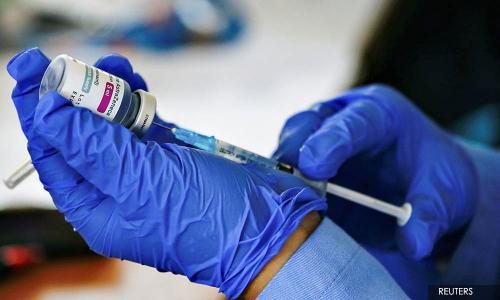Why some countries are mixing-and-matching vaccine doses?
KINIGUIDE | During a webinar on Tuesday, National Covid-19 Immunisation Programme (NIP) Coordinating Minister Khairy Jamaluddin said Malaysia is looking into offering the Pfizer-BioNTech vaccine for those who have received the AstraZeneca vaccine as their first dose.
Not only that, but he also said it is “possible” that Malaysia would adopt this strategy, which seems to have evoked mixed responses from netizens.
In this instalment of KiniGuide, we look into the heterologous prime-boost vaccination strategy and why this is being studied.
What is heterologous prime-boost?
Using the same vaccine multiple times to boost immunity is known as “homologous prime-boost” and is used in most vaccines, including those that protect against Covid-19.
However, the alternative strategy of using different vaccines for the first dose (priming dose) and subsequent doses (booster dose) has been studied for other diseases since at least 1992.
This is the heterologous prime-boost protocol, which seemed to elicit a more robust immune response but also drove up the cost and complexity of developing and deploying the vaccine. The strategy has found some early success in the vaccine for preventing Ebola.
For preventing Covid-19, the Sputnik V vaccine is designed as a heterologous prime-boost vaccine from the outset and has reported 91.6 percent efficacy in clinical trials.
The Sputnik V vaccine uses two different viruses - both rendered harmless - to deliver temporary genetic instructions into human cells for producing a protein found outside of the virus that causes Covid-19.
The body’s immune system then recognises these proteins as foreign objects and mounts the necessary immune response.
Packaging for the Sputnik V vaccine is colour-coded red or blue to help differentiate between the two doses.
With some exceptions such as the Sputnik V, however, most countries have not recommended heterologous prime boosting against Covid-19 due to a lack of data to support its use. Nevertheless, the situation is beginning to shift.
What did Khairy say about mixing vaccine doses?
During a webinar hosted by the Oxford & Cambridge Society of Malaysia, Khairy was asked a question from the audience on whether the government is considering offering the Pfizer-BioNTech vaccine as the second dose to people who have received the AstraZeneca vaccine as the first.
This is in light of the AstraZeneca vaccine’s poor performance in preventing mild-to-moderate disease caused by the Beta variant (B.1.351) of Covid-19, which is circulating in Malaysia.
In response, Khairy revealed that Institute of Clinical Research (ICR) director Dr P Kalairasu had already presented a paper on the issue to the Special Committee for Ensuring Access to Covid-19 Vaccine Supply (JKJAV) last week.
“We have some real-world data that we received from Germany about heterologous vaccinations using AstraZeneca for the first dose and Pfizer for the second dose, which has been shown to boost the neutralising antibodies and to be more effective against variants...
RM12.50 / month
- Unlimited access to award-winning journalism
- Comment and share your opinions on all our articles
- Gift interesting stories to your friends
- Tax deductable
